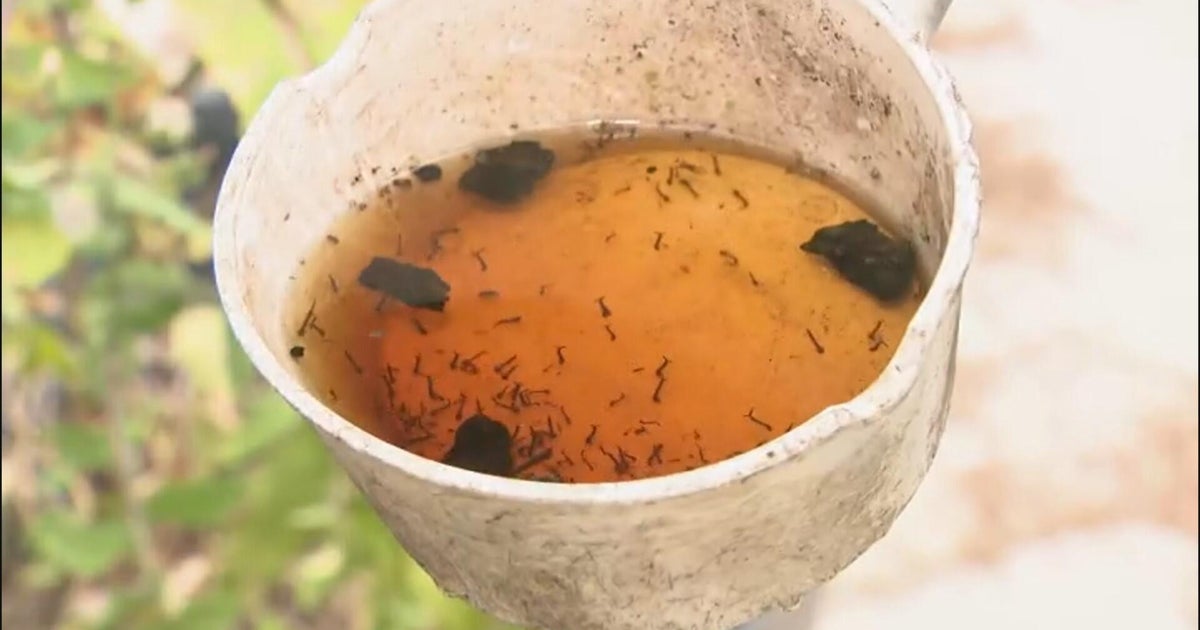Drought causing rise in West Nile virus-infected mosquitos in Santa Clara County
SAN JOSE -- As Santa Clara County faces its driest year to date in the past 128 years, county officials say drought conditions are causing a rise in mosquito populations and West Nile virus activity.
The Santa Clara County Vector Control District warned this week of an uptick in West Nile virus-infected mosquitos found in a small portion of the county.
The district recently detected infected mosquitos in Sunnyvale and Cupertino in the 94086, 94087 and 95014 zip codes. In response, will conduct mosquito control treatment centered at Carlisle and Flicker ways at 10 p.m. Thursday. The treatment will last about four hours, according to the district. A detailed map of the affected area can be found at https://arcg.is/0SnvbX.
This will be the county's seventh adult mosquito control treatment this year. Truck-mounted machines spray ultra-low volume mist that has small concentrations of federally approved insecticides, which are safe for people and animals, district officials said.
Mosquito populations thrive in the summer and fall as warmer temperatures increase their rate of reproduction, as they only need a quarter inch of water to reproduce offspring. Drought conditions can create more reproduction hotspots for mosquitos as creeks and other bodies of water dry up into stagnant pools.
West Nile virus is considered to be the "most common and serious vector-borne disease" in California, according to the state Department of Public Health, as over 7,000 people have become infected since 2003. There have been 18 cases of infection in humans this year, though none are in Santa Clara County.
Most with West Nile virus do not develop symptoms, though those with weakened immune systems and older adults are at a higher risk of developing more severe symptoms, or even death, said the district.
In efforts to eliminate West Nile virus-infected mosquitos, the district frequently inspects marshes, creeks and stagnant water sources.
"However, mosquito control is a community effort, and Santa Clara County residents can help reduce mosquito breeding on their property by removing sources of standing water," the district said in a press release.
The district reminds residents to keep window and door screens in good condition, and drain anything that can hold water on a weekly basis, like bird baths, clogged rain gutters, flower pots and irrigation drains. Free mosquitofish can also be available for pond and pool owners at sccvector.org.
And if spending time outside, residents should limit activity at dusk and dawn, wear long-sleeved shirts and pants and apply insect repellent, according to the district.
Anyone that knows of a mosquito-breeding source is encouraged to contact the district office at (408) 918-4770.







